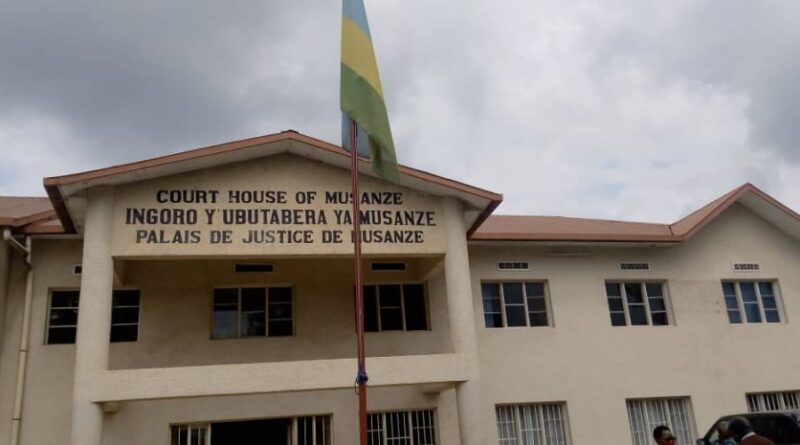Allegations of corruption at Musanze intermediate court
Citizens bringing cases before Musanze Intermediate Court have voiced growing frustrations over what they perceive as unjust rulings, claiming decisions are often swayed by favoritism, personal emotions, and corruption.
Many of these complaints stem from cases that are appealed but ultimately result in overturned lower court decisions, leading to accusations of bias among some judges.
One such controversial case involved secretaries-general who were defendants in this court, accused of various offenses. Additionally, civil cases often leave plaintiffs, who had previously won in lower courts, facing defeat in appeals, raising suspicions about the integrity of some judges.
During a visit to the court, a Teradignews journalist witnessed the ruling in the case of Bazubafite Flavia and her son Ndayisaba Daniel. They were sued alongside the buyer of their house, Munyambyiruke Emmanuel, in a case involving a plot of land. The court ruled that Bazubafite should return RWF 7 million to Munyambyiruke, despite there being no legal transaction or loan to support the claim.
The court’s reasoning was that Bazubafite had passively allowed construction on her land without protest, thus forfeiting her right to compensation, leading to her being ordered to pay.
This ruling sparked public outcry, with onlookers questioning the decision. One observer, Kamugisha Laurent, expressed disbelief: “How can the court order that the title deed be transferred to someone else without investigating forgeries in documents or hearing from the national land management agency? This is nothing but injustice and legal malpractice.”
The Genesis of the Dispute
The conflict began when Bazubafite Flavia gifted her son, Ndayisaba Daniel, a plot of land in Musanze to build a house with his wife, Masengesho Pascasie. The couple later sold the property to Munyambyiruke Emmanuel, who was given a legitimate land title. However, Bazubafite later evicted Munyambyiruke from the property, leading to legal action.
Bazubafite’s defense attorney, Me Bagaza Pacifique, argued that she never officially gave the land to her son and that the land title was forged. However, her son, Ndayisaba, maintained that the property was legally transferred to him in front of family witnesses.
Despite this, the Muhoza Primary Court initially ruled in Munyambyiruke Emmanuel’s favor, ordering the land title to be transferred to him and Bazubafite to pay compensation. Bazubafite appealed the decision, but later withdrew the appeal, only to reinstate it later, raising suspicions about legal impropriety.
Munyambyiruke, unhappy with the ruling, stated: “I wasn’t fighting to get my money back. I was seeking the return of my property, which I bought legally. I should be compensated for the loss and disruption I’ve suffered, but instead, the court gave my property to someone else without due process.”
Ndayisaba Daniel, equally dismayed, questioned why his mother was ordered to pay: “I sold the house, not her. Why is she being held responsible? It feels like corruption at play.”
Legal Expert Weighs In
Bazihana Fidèle, a legal expert, commented on the legal irregularities, stating, “If someone withdraws an appeal and later reinstates it, there needs to be a solid legal basis, which in this case seems missing. Normally, such actions aren’t permissible at the appellate level unless specific conditions are met.”
The case, shrouded in accusations of corruption and favoritism, remains a matter of public interest.
Teradignews will continue following the appeal process to shed light on any potential malpractices and ensure transparency in the judicial proceedings.

